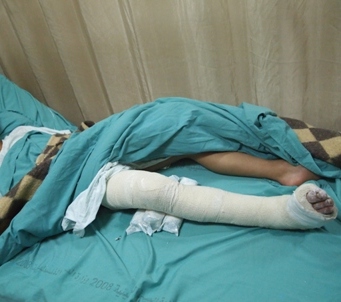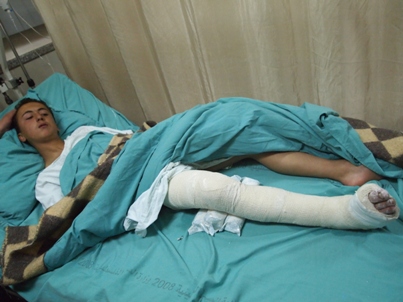Tag: Qaryut
-

Updated: 13 year-old boy shot at by settlers, tortured by soldiers, denied medical attention
19th May 2013 | International Solidarity Movement, Team Nablus | Qaryut, Occupied Palestine UPDATED: The 13-year-old Qaryut boy attacked by settlers on 16 May completed an operation on his lower leg and foot on Friday and has since been released to recover at home. He also provided a full account of his attack and the…
-

13 year-old boy shot and beaten by settlers, leg broken
16th May 2013 | International Solidarity Movement, Team Nablus | Qaryut, Occupied Palestine At about 2pm on 16 May, a 13 year-old boy was shot at and beaten by settlers; he broke bones in his leg running from the shots at him and from being beaten. After falling, the boy was threatened with his life…
-
“Nothing forbidden for them, but nothing allowed for us”
14th May 2013 | International Solidarity Movement, Qaryut, Occupied Palestine By Team Nablus Settlers from the illegal colony of Shilo set fire to land belonging to the nearby village of Qaryut. Around 25 families own land in this area. The land contained wheat crops and olive trees and is next to land previously stolen by…
